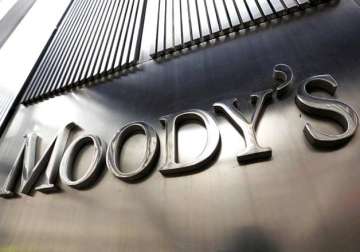New Delhi: Describing RBI's decision to designate only two lenders SBI and ICICI as systemically important as 'credit negative' for the banking industry, Moody's today said the Reserve Bank appears to have followed less stringent norms than other nations.
"RBI's implementation of its domestic systemically important banks (D-SIBs) framework appears less stringent than that of other jurisdictions, which appears to be related to the capital stress that banks in India are currently experiencing," Moody's Investor Service said in a statement.
RBI has recently identified the state-owned SBI and private lender ICICI Bank as D-SIBs and subjected them to higher levels of supervision to prevent disruption to financial services in the event of any failure.
"While RBI's decision to designate SBI and ICICI Bank as D-SIBs was on the expected lines, the fact that just two banks received the designation, instead of the four to six that the RBI had indicated in 2014 while announcing its D-SIB framework, is credit negative for India's banks," Moody's said.
With the D-SIB designation, SBI must maintain additional common equity as a percentage of risk-weighted assets of 0.6 per cent above the minimum required for other banks while ICICI Bank will need an additional 0.2 per cent, it said.
The additional requirements differ because RBI classifies SBI and ICICI Bank into different "buckets" of systemic importance, it said, adding that the framework will start off from April 1, 2016 and become fully effective April 1, 2019.
"We expect ICICI Bank to have no difficulty in meeting the additional capital requirement imposed by the D-SIB framework, given that it has kept its common equity tier 1 level above 12 per cent since 2014," it added.
It said that SBI will face more of a challenge in meeting the higher capital requirements.
"As such, although the bank can meet the transitional D-SIB capital surcharge, we expect it to rely on a combination of government capital injection and external capital raisings to meet the additional capital requirements when fully phased in," it said.
Latest Business News
